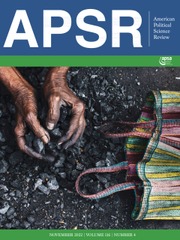Lukas F. Stoetzer
Professor of Quantitative Methods, Research in Political Behaviour.

I am a Professor of Quantitative Methods at the Department of Philosophy, Politics and Economics at the University of Witten/Herdecke.
Before I worked at the Humboldt University of Berlin, at the excellence cluster SCRIPTS, at the Department of Political Science at University of Zurich, and a as Postdoctoral Fellow at the Massachusetts Institute of Technology, Department of Political Science, on a project that was funded by the Fritz-Thyssen Foundation. I graduated from University of Mannheim at the Graduate School of Economic & Social Sciences in May 2015.
My research in quantitative methods focuses on the application of causal inference and measurement methods. My subtantial area of research pertains to understanding political behaviour and its consequences in representative democracies. To find answers to the question how voters’ behaviour influences democratic quality, I develop quantitative research methods and build on formal theoretical decision making processes.
news
| Oct 24, 2023 | Two Publications in Electoral Stduies |
|---|---|
| Sep 7, 2023 | Publication in Research and Politics |
| Dec 12, 2022 | Publication in Political Behaviour |


